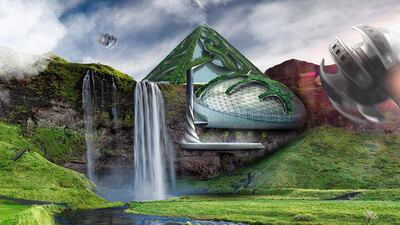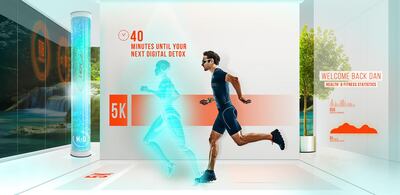What will the hotel of 2119 look like? Will we be taking mini-breaks on the moon? Staying in hotels crafted from recycled plastic? Dining on gourmet insects? Exercising with personal trainers in holographic form?
Hilton certainly thinks so. To celebrate its 100th anniversary, the hotel brand has released a report predicting what hotels might look like another 100 years from now. The report relies on insight from experts in the fields of sustainability, innovation, design, human relations and nutrition, and offers a fascinating glimpse into how future generations might travel.
“Hotels have migrated to other planets and high up in the mountains to avoid encroaching seas,” the report begins. “We’ve ventured into the middle of unexplored, previously uninhabitable deserts and created places of beauty and recreation. Blank spaces morph into hyper-personalised places, and insect protein and lab-grown meat dominate in restaurants.”
Hyper personalised spaces
Building on a trend that is already in evidence, the report predicts that personalisation will be king in 2119. Technology will allow every aspect of the hotel experience — from fittings and furnishings to temperature, lighting and entertainment options — to adapt to an individual’s real-time needs and preferences. Microchips embedded in our skin will allow us to wirelessly communicate and control the environment around us.
Every area of a hotel will instantly morph into a hyper personalised space, based in individual data insights gleaned from embedded chip technology. “Think star-scattered scenery for space-lovers, meadow views for weary city dwellers, or safari displays for adventurers,” the report states.
If you’re a weary traveller missing home, you might want your room to turn into a replica of your own bedroom; if you’re an adventurer longing to experience the beaches of yesteryear, your room can transport you there; and if you have a bad back, your bed will automatically react to make you as comfortable as possible.
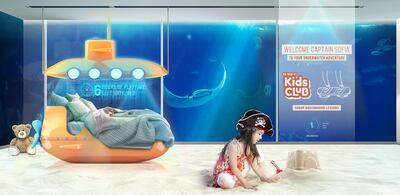
Beetles on the menu
Personalisation will also be front and centre when it comes to hotels’ dining offerings. The report predicts that, by 2119, our diets will include more plant-based recipes, as well as some surprising sources of protein, so expect the likes of beetle bolognese, plankton pies and seaweed green velvet cake to feature on restaurant menus. Every plate served will be entirely personalised, as chefs will be supplied with biometric data on each guest, allowing them to create meals based on both individual preferences and nutritional requirements.
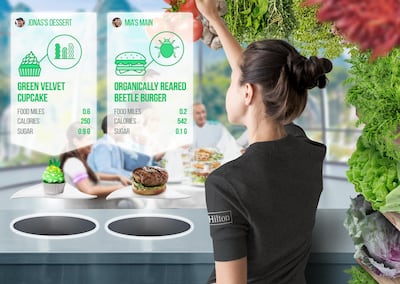
Scaling a digital Everest
Exercise routines will be just as unique. Guests will be able to outswim a virtual turtle in the pool, scale a digital Everest or practise yoga on an imaginary iceberg. Either way, the energy generated form these endeavours will be used to power the hotel, creating a circular, zero impact system. Guest may even be able to earn themselves reward points if they achieve their exercise goals. Help will be on hand courtesy of holographic personal trainers.
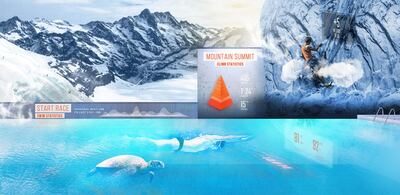
Retaining the human touch
That’s not to say the human touch will become obsolete. In an age of AI, human contact will be more important than ever, the report maintains — in fact, technology will serve to free up time for hotel staff so they can focus on “what matters most: helping guests to connect with one another and building memorable moments.” And for guests, “offline will be the new luxury as we seek to find moments of tech-free time”.
Hotels crafted from ocean-dredged plastic
Only businesses that are inherently responsible will survive the next century, the report insists. This will be the guiding feature of every aspect of the hotel experience, whether in the form of weather-proofed domes or buildings crafted from ocean-dredged plastic. Hotels will also act as the linchpins of the communities around them, with community-tended insect farms and vertical hydroponic crop gardens located on site and accessible to all.
The future hotel will have been shaped by global challenges that the human race will have faced and hopefully overcome: food supply, extreme adverse weather and multiple natural disasters. “Humankind will have evolved and adapted, shaping the way we live to ensure we have zero impact on any environment.”
